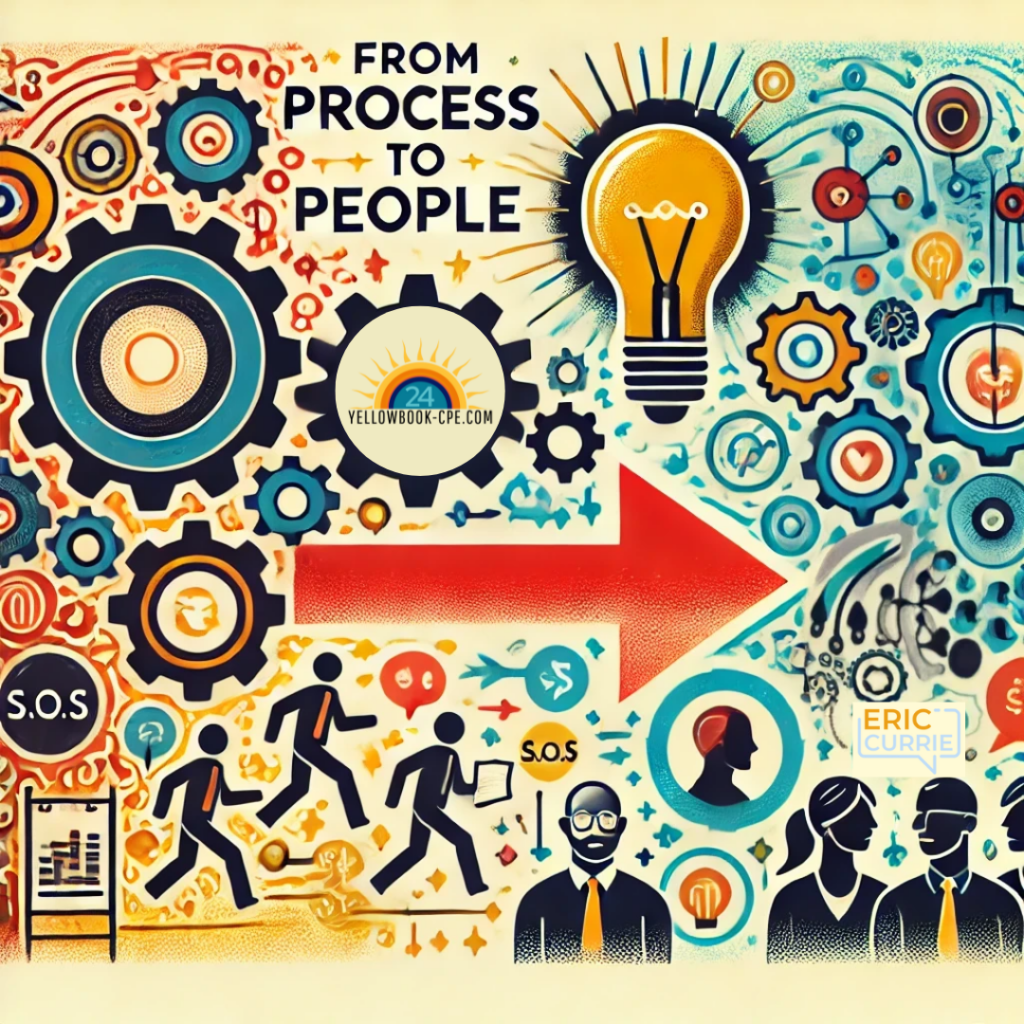Special thanks to our featured speaker, Eric Currie, for contributing this valuable article on how to show your team you care about them during change as it happens. Yellowbook-CPE.com greatly appreciates Eric for allowing us to publish it.
In the news, the PCAOB announced a controversial new regulation directly targeting internal audit teams. The initiative, known as “Audit the Auditors,” will require internal audit departments to submit their auditors’ work for review by an PCAOB-appointed external audit team every three years.
This change not only addresses compliance – it fundamentally alters the role and responsibilities of internal auditors. Adjusting to this new reality will challenge auditors in maintaining the balance between delivering on their core responsibilities and preparing for their own potential audit.
Does this shift sound too unbelievable? Well, that’s because it is. While the above change scenario is completely fictitious, here’s what’s likely: You and your team will soon be asked to work in new ways.
That change is closer than you think… are you ready?
Consider for a moment how you would handle the Audit the Auditors change. If you’re like most, you probably have several questions. For instance, “Why is this happening?”, “Why is this happening now?” or “How will this impact me?” Each question is reasonable and fair, but are you prepared to provide the answers to these questions to your team? Just like you, your team will have questions. A lot of questions. Questions that may never even be shared to you.
In the wake of change, it’s easy to get caught up in operationalizing it. Specifics like the timeline, details of the new system or process, or if there will be training. While these logistics are all necessary to understand, it leaves out the human side.
Human-focused change involves placing people at the center. Each person on your team has these things called feelings which can be complicated and sometimes hard to deal with. However, only focusing on the process doesn’t implement change well.
So, how can you let your people know you care about them during change and still make the change happen?
The solution lies in the S.O.S. you make to your team. With each change different than the last, we can all use a little help from time to time.
Let’s take a look at what each letter stands for:
S: Start with Clarity
- Explaining the ‘why’ of a change is crucial in getting knowledge workers to ‘buy-in’ to it. News flash! Not all changes have a well-established or a compelling ‘why.’ If this is the case, put on your detective hat and seek out the answer to this question. I understand this may be easier said than done, but ultimately having a solid understanding of the ‘why’ will decrease the cleanup work once the change is implemented.
- To validate your understanding, see if you can answer these three questions:
- Why is this happening?
- Why is this happening now?
- What is my team being asked to do differently?
O: Open Up Discussion
- In human-centered change, it’s important you allow people a ‘safe space’ to share their thoughts and feelings. This does not mean you must problem-solve everything they share. Let me say that again. It does not mean you must problem-solve everything they say. You’re just allowing them to be heard and focusing on the ‘what’ and not on the ‘how.’ This goes a long way in establishing more (or greater) rapport with the individuals on your team.
- Not sure where to begin? Use the question “What’s on your mind about this adjustment?”
S: State the WIIFM
- Change can be overwhelming even when you are pro-change! So, it’s important you translate the change into what’s in it for them. Each person sees the world through their own lens of how ‘this’ will impact or benefit them.
- To help define the WIIFM, ask yourself:
- How will this change solve a problem for them?
- What will they learn as a result of this change?
- How does this enhance their career or job?
S.O.S. focuses on creating a clear path forward and places the person at the center of change. Using S.O.S. is a great way for you to be a champion of the human experience and meet the goals and objectives of the business.
Want to learn more?
Join Eric on November 6 for Emotionally Intelligent Leadership for Government Auditors. This 2-hour live webinar is a specialized training class designed to equip government auditors with the skills needed to guide their teams through the transformative journey of change. Sign up today!


 Yellowbook-CPE.com is registered with the National Association of State Boards of Accountancy (NASBA) as a sponsor of continuing professional education on the National Registry of CPE Sponsors. State boards of accountancy have final authority on the acceptance of individual courses for CPE credit. Complaints regarding registered sponsors may be submitted to the National Registry of CPE Sponsors through its website:
Yellowbook-CPE.com is registered with the National Association of State Boards of Accountancy (NASBA) as a sponsor of continuing professional education on the National Registry of CPE Sponsors. State boards of accountancy have final authority on the acceptance of individual courses for CPE credit. Complaints regarding registered sponsors may be submitted to the National Registry of CPE Sponsors through its website: